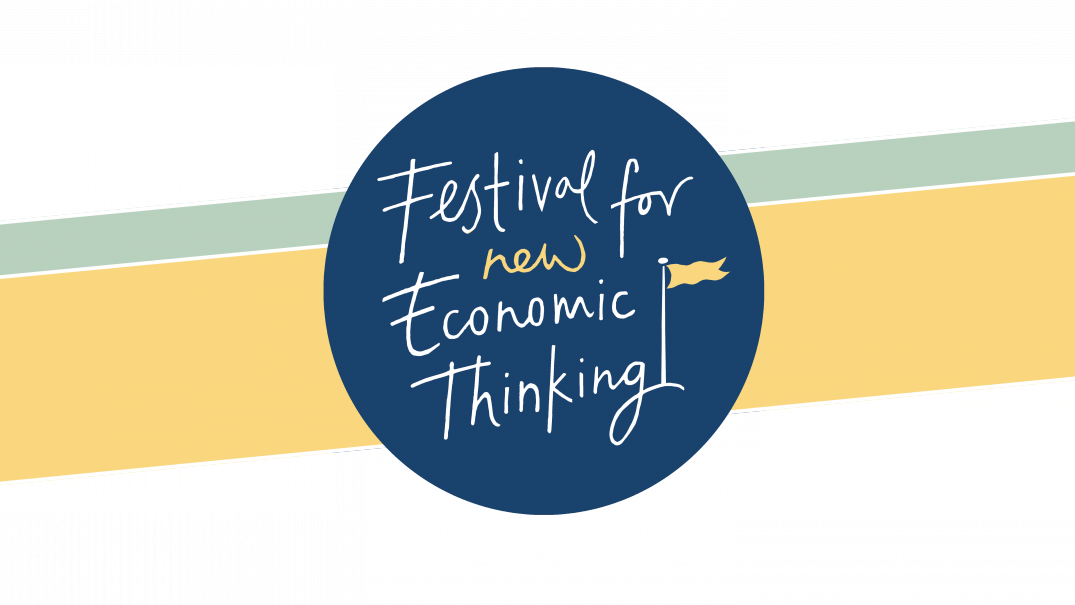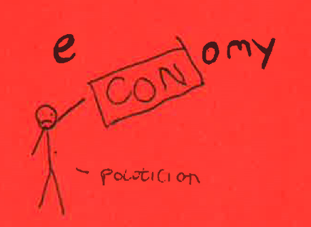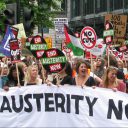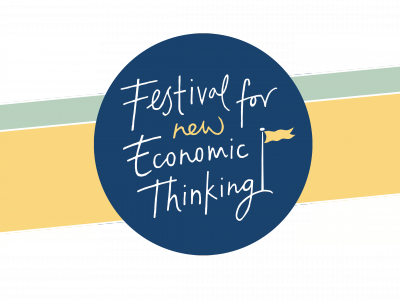Why economics has a democratic deficit

The first ever Festival for New Economic Thinking is taking place in Edinburgh on 19-20 Oct 2017. It brings together people and organisations who are committed to advancing economic thought and inspiring change. Here Reema Patel explores why economics has a democratic deficit, and what can be done about it.
There are many reasons for why more democratic approaches to economics are necessary and valuable. As well as shaping better and more informed economic decisions and improving its quality, meaningful efforts to engage citizens on economics helps us explore citizen values and voices about economics, promotes transparency about economic priorities, and strengthens democracy and debate. Despite the enormous potential democratising the economy has for a new approach to economics, there is a serious democratic deficit in economics. This takes three forms:
- The transparency deficit: There is a lack of transparency in economics about the political implications involved when economic decisions are made, and this lack of transparency is compounded by the inaccessibility of economic language.
- The legitimacy deficit: There is a lack of legitimacy in economic decision making caused by the dominance of technocracy and the exclusion of citizen voice. This has fuelled a rise in populism and revoked the ‘social licence’ of policymakers and economists.
- The accountability deficit: Declining accountability has resulted in narrowness to economics itself, with a debate that is less creative, less connected to, and less able to respond to our collective social problems.
The transparency deficit
“Only when the general public displays awareness of these issues will professional economists find it impossible to browbeat them by declaring themselves to be custodians of scientific truths.” – Ha-Joon Chang (Economist)
Economics is often presented as the domain of the ‘experts’ alone when it is not. There needs to be more transparency about the political choices behind economic policy. Yet despite the clear public interest in asking these questions directly of citizens and engaging them in informed dialogue and discussion, it is rare for economists and policymakers to do so. This is compounded by the existence of jargon that often shrouds simple, intuitive concepts in complex language, resulting in citizens shying away from expressing their views on economics as confidently as they might on other issues that form an important part of public debate – such as gay marriage, or the NHS.
As economist Ha-Joon Chang explains, economics is a fundamentally political and moral subject, its origins being in moral philosophy. To explain that economic decisions are determined by ethical and political judgements, Chang uses the example of child labour, which he notes was a legitimate object of market transaction (even in the world’s richest countries) until the early 20th century. According to Chang, this example demonstrates to us that the market itself is a political construct as opposed to a ‘natural order’ that cannot be tampered with by political intervention. As such, economics is as much about citizens as it is about ‘expertise’; and that expertise must be in service to citizens and their values and ethics, not the other way around.
The legitimacy deficit

Drawing, from RSA Citizens’ Economic Council Inclusion Roadshow workshop in Port Talbot
We live a world in which economics is experiencing a crisis in legitimacy and public trust at the same time as holding disproportionate influence and power. The 2016 referendum on the European Union in the UK exposed an enormous disconnect between citizens and the economic, political and policymaking consensus; as did the 2008 world financial crisis in which we witnessed scenes of political protest from citizens at the site of major financial institutions across the world. In the past year, the Edelman Barometer of Trust has reported a global implosion in levels of citizen trust in policymakers, companies, politicians and economists.[1] Oxford Dictionaries declared the international word of the year in 2016 to be ‘post-truth, defined as an adjective ‘relating to or denoting circumstances in which objective facts are less influential in shaping public opinion than appeals to emotion and personal belief’.[2] The rise in populism and the era of ‘post-truth’ is a signal that politics and democracy itself needs to change. Nowhere is this more apparent than in the field of economics where issues that are cloaked in economic jargon or confusing language conceal trade-offs and choices that are more legitimately the domain for public dialogue and public participation.
The accountability deficit
Economic policy is an area that has considerable influence and impact on the day-to-day lives of citizens through the decisions made by governments about the future of the UK economy. Despite this, there are limited efforts to engage citizens on economics itself. This lends itself to an accountability deficit; often economic decisions are made ‘behind closed doors’, with little, to no public engagement. As a consequence, they often find themselves subject to fierce public scrutiny and criticism when announced. Controversial decisions have been made that have faced public backlash, and have forced a reversal of government economic policy – examples of these have included the government’s plans to introduce the bedroom tax and planned cuts to personal independence payment (PIP) disability allowances.
This approach of ‘decide, announce, defend’, which dominates economics and economic decision making has two effects. Firstly, it is costlier and more damaging to the legitimacy of decision makers in the long term. And secondly, it pushes economics itself further and further away from citizens – perpetuating a vicious cycle of an economics that is resulted in narrowness to economics itself, with a debate that is less creative, less connected to, and less able to respond to citizens’ concerns and problems.
Where next?
In its place, we propose that economic decision makers and institutions prototype, adopt and embed citizen engagement approaches such as the RSA Citizens’ Economic Council and citizen assemblies such as the Brexit Citizens’ Assembly. These are collaborative, co-productive dialogues between citizens, experts and policymakers with a view to strengthening legitimacy, transparency and trust between citizens and experts. Yet we recognise that doing this well is far from easy. It requires us to recognise that there are barriers – systemic and institutional – that need to be addressed to enable democratic innovation to flourish in a sustained way. Our interim report on the Citizens’ Economic Council due to be published later on this year will lay out in more detail the way forward on these issues.








